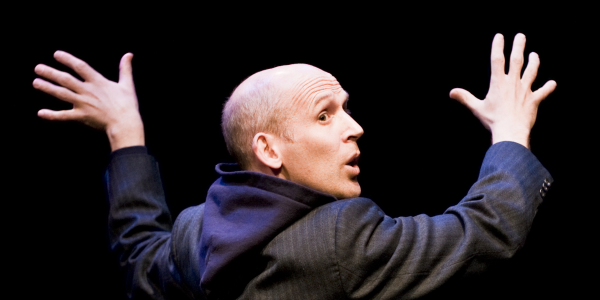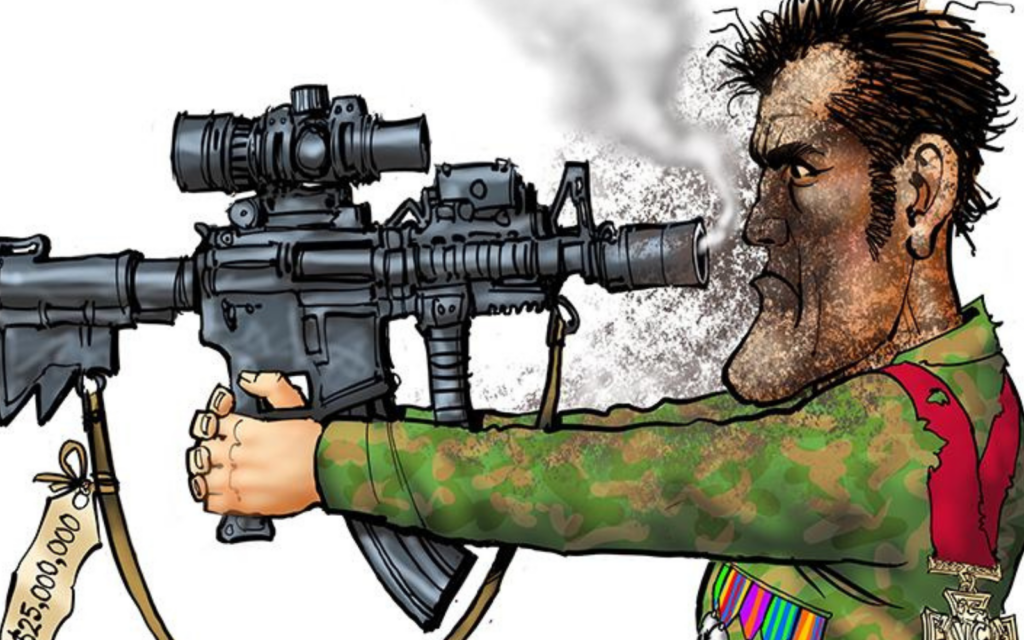The works of Samuel Beckett may confuse you at first, but when they click, they will blow you away.
The works of Samuel Beckett may confuse you at first, but when they click, they will blow you away. His dense, abstract language and sometimes disturbing, bleak themes may turn some away, but for others, the theoretically rich works are a totally inimitable part of the canon. Conor Lovett of the Gare St Lazare Players in Ireland (Beckett’s homeland) is coming to the Melbourne International Arts Festival with readings from Beckett’s novels – Molloy, Malone Dies and The Unnamable – books which deal with birth, death, and all that’s in between, all in the unrelenting register of Ireland’s greatest writer.
“I first started reading Beckett when I was about 18 and a friend of mine who was studying English at university said, “Check this guy out!” And I did. And I instantly liked what I was reading,” explains Lovett, one of the most important Beckett performers in the world today, calling me from Brisbane where he is performing another of Beckett’s works, First Love, for the Brisbane Festival. “I began reading the novels at the same time as I began reading the plays, so I come to realise in the meantime that not everyone is familiar with the novels and over the years of performing, in particular his prose work, as our company has done, we’ve been happy to turn people on to the novels to a certain extent.”
For most, Beckett is best known for his existentialist masterpiece, Waiting For Godot, but his three novels are the focus of Lovett’s performance for The Melbourne International Arts Festival. Rather than a dramatisation, he will be reciting parts of them, which allows the rich language of the texts to really come to life. “I try to think of things more in the vein of a musical score,”
Lovett muses, explaining the nature of his performance of the novels which feature strong narrator voices and require some sort of adoption of character despite the objective nature of a ‘recital’. “Obviously you’re pretending you’re that person telling that story, but you’re also trying to keep out of the way of Beckett, and trying to let the work speak for itself at the same time,” says Lovett. “For me as an actor it doesn’t seem any different to doing any other role, other than it’s something that I particularly connect with.”
As with most of Beckett’s work, the interpretation becomes deeply important. With The Beckett Estate, an authority that monitors all performances of Beckett’s work to check for crimes against the text hovering over the shoulders of performers, accuracy and taste is key. “I guess that I don’t see it as my role to interpret it in the performing of it,” he explains, emphasising that they want to leave the works more open than closed. “I think like Judy, who directs the work, we don’t like to think in terms of setting down any particular theory or point of view on it. One of the things that fascinates me about Beckett is that on one hand he worked through so many different layers; with each work you can go into it from so many different layers; the social, the political, the philosophical, sometimes the medical, and the best thing from our point of view would be to allow the audience to go into it any way they want to. Obviously we are reading the work and it’s our representation of it opposed to some one else’s and there’s definitely our stamp on it, but we would hope that part of that stamp is in leaving it open for people to find what they find in it.”
Choosing which parts of the novels to actually perform was quite a task as well, Lovett recounts. “When we read Molloy at first we didn’t know what we were going to do afterwards. So, we just chose a chunk from very early in the novel and were satisfied that it was a good introduction to the novel and to the character of Molloy – we don’t deal at all to part two of Molloy which is written by Jack Moran. When we came to Malone Dies we tried to distil the work somehow so that we get an element of understanding from the beginning, middle and the end – we split it into three parts; Malone in his present state, in the room where he returns often throughout the novel to tell us what’s happening. Second is about the stories he attempts to tell, which invariably fail – to a certain point. And last, the third element is observations – his commentary on things, his memories – his musing, if you like. We thought it was vital to have an element of all three of those, but as we went along we concentrated mainly on the stories with his observations. It was almost ten years ago since we did The Unnameable and I think if we came to it now we’d be older and wiser and probably far too careful. Back then we just jumped into it and I’m still very pleased with what we’ve done with it. I think it’s a reasonably fair effort at essentiallising the thing.”
To essentialise these novels is quite a task – but if anyone is up to it, it’s the Gare St Lazare Players.
The Gare St Lazare Players’ marathon performance of Molloy, Malone Dies and The Unnamable happens at The Arts Centre Playhouse from October 14-17. Tickets are from $25-$55 and available from the Melbourne International Arts Festival website, The Arts Cetnre (1300 182 183) or Ticketmaster (1300 723 038).







